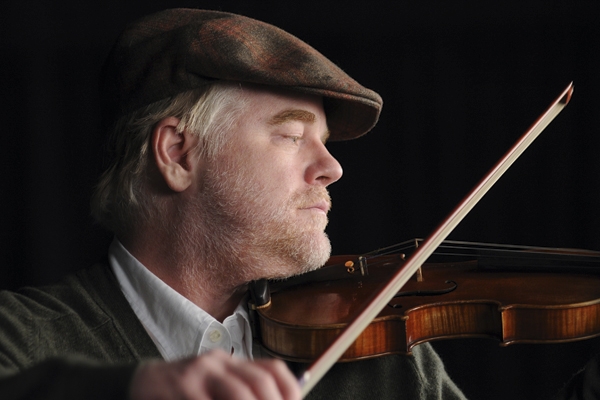Why the sudden spate of movies about classical music quartets and impending death? Early this year, we had Quartet, about four senior singers in a retirement home. Now we have A Late Quartet, about a string ensemble facing the loss of one of its members. The film industry couldn’t possibly be subliminally associating classical music with ageing and fuddy-duddyness, could they? Shame on them. Perhaps before the year is out we’ll have The Latest Quartet, then we’ll know that classical music has carked it altogether.
Anyway, of the two movies (so far), Late is by far the more masterly. It is for all intents and purposes a chamber film — intimate, intricate and with very few players. Built around Beethoven’s ‘String Quartet No. 14 in C sharp minor’, which has seven movements meant to be played non-stop, it tries to be the filmic equivalent of a chamber piece. There is hardly ever more than three or four people in a frame, lots of close-ups, and the dialogue builds in a kind of interwoven layering. The plot is at first subdued, then different motifs come in until there are several strands going on at once.
In the beginning it is andante, almost too andante. You want to cough and look at your programme. Peter Mitchell (the peerless Christopher Walken), the cellist and patriarch of the world-famous quartet The Fugue, finds out he has Parkinson’s disease. This necessitates his replacement in the ensemble, which has played together for 25 years. Robert Gelbart (Philip Seymour Hoffman in a stellar turn) decides he doesn’t want to play second fiddle any more and demands to alternate chairs with first violinist Daniel Lerner (intriguingly played by Mark Ivanir). Meanwhile, Gelbart has problems with violist Juliette (Catherine Keener), who is also his wife.
Cue The Fugue feuding, which also drags in the Gelbarts’ daughter Alexandra (Imogen Poots) in a growing torrent of emotional retaliation and sexual upheaval. Thus the film, which is directed by Yaron Zilberman, gradually gains in tempo to approach attacco (which was how Beethoven wanted his quartet to be played), to reach a finale in every sense of the word.
Yes, it’s all rather contrived. The contrivance is both A Late Quartet’s weakness and its strength. Some critics have accused the movie of being melodramatic, but I personally have no problem believing that classical musicians bonk each other all the time while indulging in massive ego trips. (Indeed, I’d be astounded if they didn’t.) The problem is more that the movie’s psychological edge is almost too neatly counterpointed by the aesthetics of the film, stylised to a degree that the characters’ celluloid turmoil risks finding any real resonance with us.
Most of the action of A Late Quartet happens in rooms that rather too impeccably reflect the characters’ personality and inner conflicts. Daniel, the control freak, lives amid tasteful modernist decor, Peter’s home has sublime Japanese woodcuts, the Gelbarts inhabit a middlebrow apartment that embraces both culture and domesticity, their daughter’s flat screams shabby chic. From chamber to chamber, everything is note perfect. Nothing is out of place, even the things that are out of place. The signposting couldn’t be more obvious if Beethoven had written out the instructions himself, in bold capitals.
Such immaculate fine-tuning is almost stifling; one gets the uneasy feeling that one is being, well, played. When the characters’ lives start unravelling, the visuals of the film never quite tip over the edge — it is all messiness composed, disorderliness contained. So we get a rather strange denouement that is both passionate and pat.
Yet this finally works in A Late Quartet’s favour, if only just. The movie’s rather ponderous message — life is about working together to make beautiful art — is anchored by the powerful performances of its four main actors, each showing what being a maestro is about, taking it in turns to carry a scene, blending his or her talent to another’s when the moment calls for it.
For the film is about two branches of the arts — music and acting. It doesn’t matter that at certain junctures we are made only too aware that Seymour is in a performance, in every sense of the word, or that Keener really knows how to work in a group, or that Walken is crowning a stupendous career. That’s what the movie is about.
Like a Beethoven quartet, emotions only have any meaning when given a certain structure, set against a particular framework. Feelings can run high because patterns have been set. As the best classical music reminds us, composition and catharsis can be one.






Comments